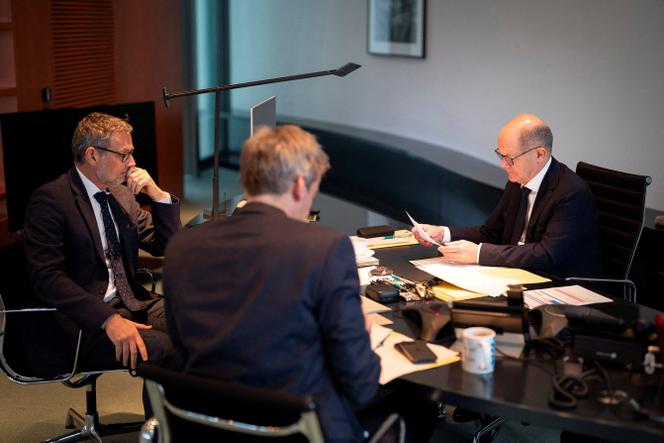


Will the German elections weaken European unity in support of Ukraine, already shaken by Donald Trump's return to the White House in 2025?
German Chancellor Olaf Scholz announced on Friday, November 15, that he had spoken by telephone with Russian President Vladimir Putin. This is the first formal exchange in two years, not only between the chancellor and the Russian president, but also between a Western leader and the head of the Kremlin. The conversation comes just days after Putin established contact with the next US president, with Kyiv on the defensive against advancing Russian troops, and the war entering its third winter.
The move was sharply criticized by Ukraine, as it drives a wedge into the united front publicly displayed by Western allies in support of Kyiv, just as Joe Biden prepares to hand over the presidency to the winner of the US election on January 20, 2025. It also comes as the Social Democratic Chancellor (SPD) launches his campaign for early elections scheduled for February 23, 2025, following the collapse of his coalition.
During the exchange, Scholz "condemned Russia's war of aggression against Ukraine," according to the chancellery, as well as the use of North Korean troops, and called on Russia to demonstrate that it is "ready for serious negotiations with Ukraine with the aim of achieving a just and lasting peace."
Informed in advance by Berlin, Ukrainian President Volodymyr Zelensky made no secret of his irritation, accusing Scholz of having "opened Pandora's box" with this "attempt at appeasement" towards Moscow – a clear reference to the language used by the European allies in the 1930s in response to the Nazi threat. "This is exactly what Putin has wanted for a long time," criticized Zelensky on Telegram. "It is extremely important for him to come out of his isolation, Russia's isolation, and conduct formal negotiations that will lead nowhere."
"We want to warn you: there will be no 'Minsk 3.' We need real peace," added the Ukrainian president, referring to a potential agreement modeled on the one negotiated in 2015 under the aegis of France and Germany, which froze the conflict. "Conversations with the Russian dictator alone bring no added value to achieving a just peace," said Ukrainian Foreign Ministry spokesman Heorhii Tykhyi, outraged.
The Kremlin, for its part, explained in a statement that the discussion took place at Berlin's initiative and that any peace agreement with Ukraine would have to take account of "new territorial realities," calling on Kyiv to make concessions on regions currently occupied by the Russian army. "Potential agreements must take into account the security interests of the Russian Federation, be based on the new territorial realities and, above all, address the root causes of the conflict," said the Kremlin.
You have 68.44% of this article left to read. The rest is for subscribers only.
